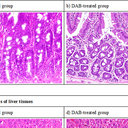Finnish
Albanian
Arabic
Armenian
Azerbaijani
Belarusian
Bengali
Bosnian
Catalan
Czech
Danish
Deutsch
Dutch
English
Estonian
Finnish
Français
Greek
Haitian Creole
Hebrew
Hindi
Hungarian
Icelandic
Indonesian
Irish
Italian
Japanese
Korean
Latvian
Lithuanian
Macedonian
Mongolian
Norwegian
Persian
Polish
Portuguese
Romanian
Russian
Serbian
Slovak
Slovenian
Spanish
Swahili
Swedish
Turkish
Ukrainian
Vietnamese
Български
中文(简体)
中文(繁體)
Journal of Cachexia, Sarcopenia and Muscle 2019-Aug
Vain rekisteröityneet käyttäjät voivat kääntää artikkeleita
Kirjaudu sisään Rekisteröidy
Linkki tallennetaan leikepöydälle
RESULTS
A total of 4332 obese patients were enrolled in this study. After propensity score matching, 1620 patients, including 60.2% women, with a mean age of 36.5 (9.9) years were divided into BS or non-surgery groups (n = 810 per group). The overall mean eGFRs increased by 4.4 (14) mL/min·1.73 m2 and decreased by 6.4 (16.0) mL/min·1.73 m2 in the BS and non-surgery groups, respectively. The decrease in BMI in the BS and non-surgery groups were 2.5 and 1.3 kg/m2 , respectively. In the moderate/high CKD risk BS group, a significant correlation was evident between an increased eGFR and a reduced BMI (Spearman's correlation -0.229, P < 0.001). The Cox regression analysis showed that the BS group had a significantly lower risk of an eGFR decline ≥25% at 12 months [adjusted HR (aHR) 0.47, P = 0.03). After BS, obese patients with hypertension or albuminuria had significantly lower risks of eGFR declines ≥25% (aHR 0.37, P = 0.02 and aHR 0.13, P = 0.0018, respectively).Täydellisin lääketieteellinen tietokanta tieteen tukemana
- Toimii 55 kielellä
- Yrttilääkkeet tieteen tukemana
- Yrttien tunnistaminen kuvan perusteella
- Interaktiivinen GPS-kartta - merkitse yrtit sijaintiin (tulossa pian)
- Lue hakuusi liittyviä tieteellisiä julkaisuja
- Hae lääkekasveja niiden vaikutusten perusteella
- Järjestä kiinnostuksesi ja pysy ajan tasalla uutisista, kliinisistä tutkimuksista ja patenteista
Kirjoita oire tai sairaus ja lue yrtteistä, jotka saattavat auttaa, kirjoita yrtti ja näe taudit ja oireet, joita vastaan sitä käytetään.
* Kaikki tiedot perustuvat julkaistuun tieteelliseen tutkimukseen



